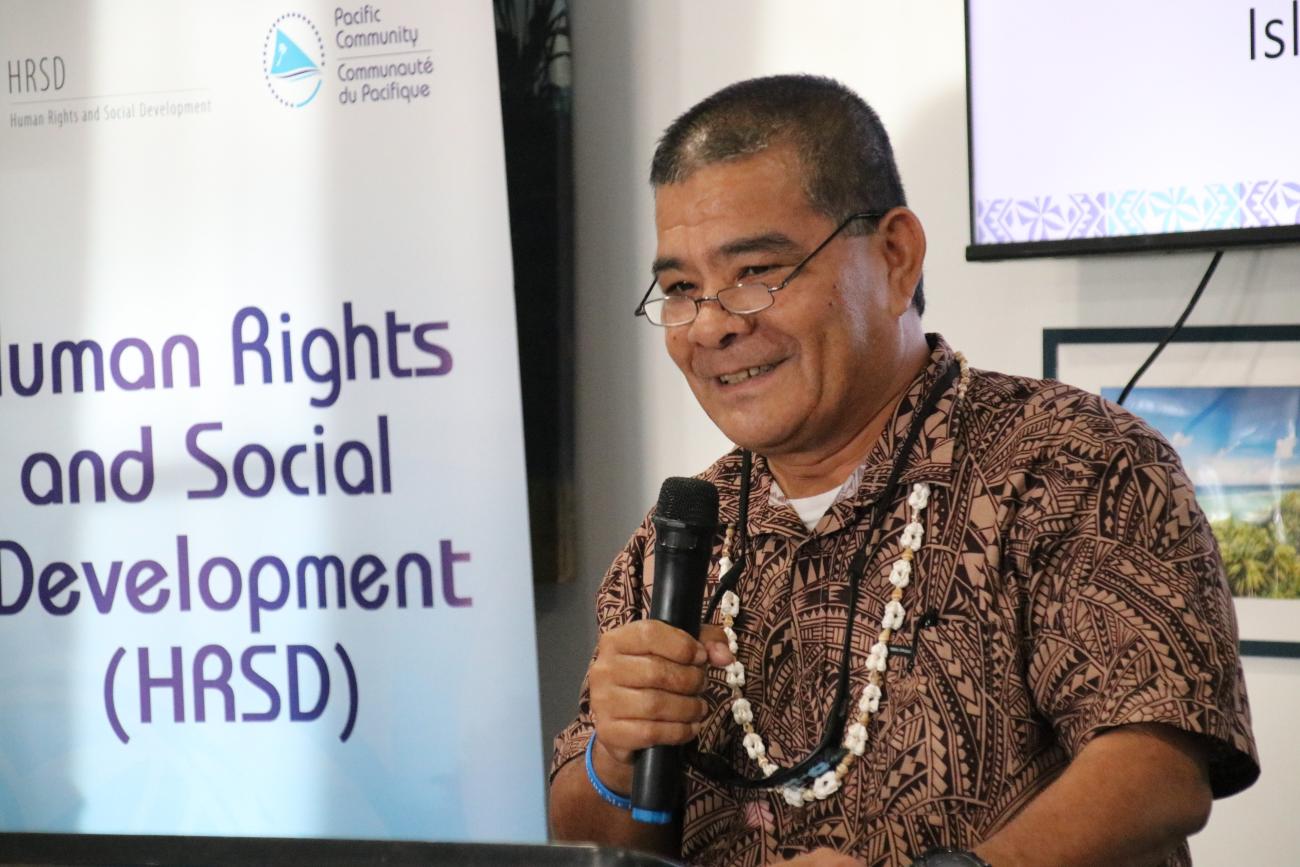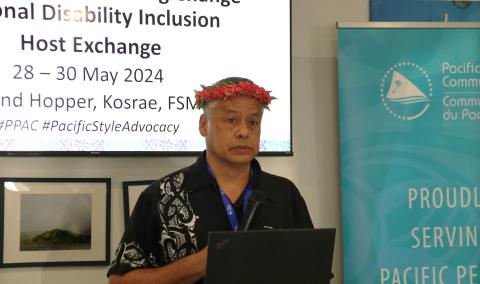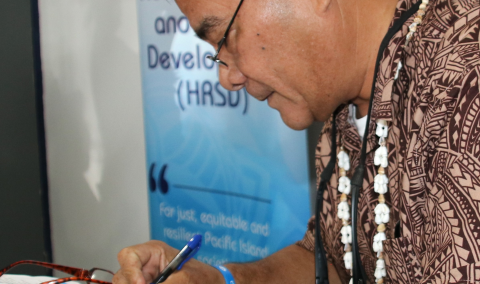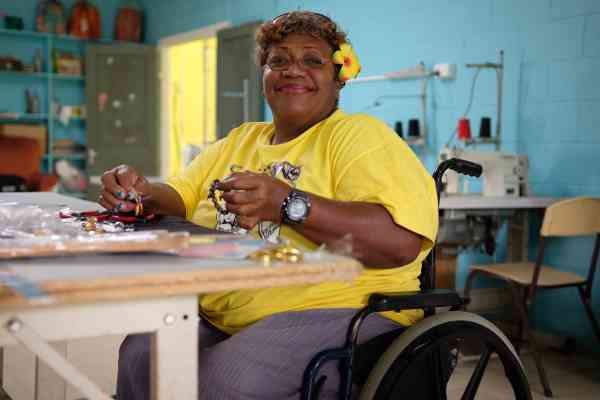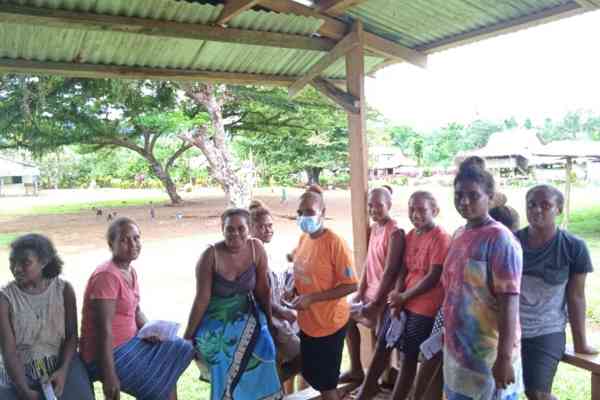(contenu disponible en anglais uniquement)
Civil Society Organisations share best practices for better disability inclusion in the Pacific
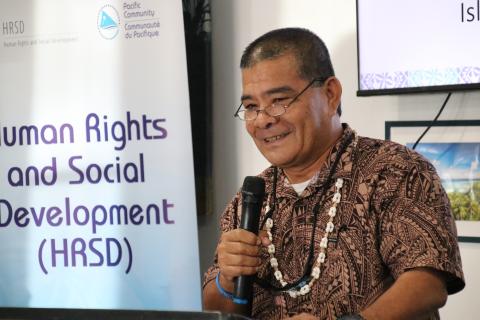
31 May 2024 - Kosrae, Federated States of Micronesia – The Pacific Community (SPC), in collaboration with the Federated States of Micronesia (FSM) National Government and the Kosrae State Government, held a Regional Disability Inclusion host exchange in Kosrae from 28 – 30 May. The event brought together eight civil society organisations engaged in disability rights and inclusion advocacy campaigns from around the Pacific region to share best practices and strengthen their capacity in disability inclusion advocacy, with a long-term goal of contributing to improving disability inclusion in the region.
This exchange took place as part of SPC’s Pacific People Advancing Change programme (PPAC), which aims to build advocacy capacity among Pacific Civil Society Organisations (CSOs) engaged with human rights issues and advance those issues by supporting specific campaigns.
The Regional Disability Inclusion host exchange showcased Kosrae Special Parent Network (KSPN)’s achievements to date, lessons learnt and best practices from their advocacy campaign around disability inclusion through legal reform. The event also aimed to enhance the learning, skills, and advocacy practices through South-South exchange among the CSO grantees engaged in disability inclusion advocacy campaigns under the PPAC programme. SPC will use the sharing at the exchange to develop a ‘what works’ paper documenting good practices and lessons learnt on CSO advocacy for legal reform on disability rights and inclusion.
As a result, CSO grantees engaged in disability inclusion advocacy are expected to apply the learnings from this exchange and the ‘what works’ paper to strengthen the implementation of their advocacy campaigns.
Governor of Kosrae, T.H. Tulensa W. Palik, said: “We are elated that the PPAC Disability Inclusion Host Exchange is taking place in Kosrae, the smallest state in the FSM. This shows our people that considering the rights of our disabled citizens is a priority. The Kosrae Disability Inclusion Act was enacted a few years ago, and we are now focusing on the implementation of the law. I am pleased to announce that the International Day of Persons with Disabilities (3 December) becomes a public holiday in the State of Kosrae, which commemorates this week’s event. Signing the executive order for the Kosrae Disability Taskforce this week is also an important step forward.”
Director of SPC’s Micronesian Regional Office, Mr William Kostka, said: “This disability inclusion exchange programme has provided a platform to share best practices and lessons learnt in disability equity and rights advocacy grounded in positive expressions of Pacific cultures that is underpinned by shared values of relationship building, meaningful participation, collaborative efforts to promote the rights of persons with disabilities. We value and believe in the work that CSOs do in their communities and countries through the PPAC grants, and we will continue to support them to promote disability equity and rights.”
Persons with Disabilities represent an estimate of 15% of each Pacific Island national population. Pacific leaders are committed to promoting Disability Inclusive Development grounded in disability equity and rights through the endorsement of the Pacific Framework for the Rights of Persons with Disabilities (PFRPD) 2016 -2025. There have been pockets of success for disability inclusion over the past decade and a half, and the United Nations Convention on the Rights of Persons with Disabilities (CRPD) has now been ratified by 14 Pacific Island Country (PIC) governments. However, the region is not on track to achieving the Sustainable Development Goals or the CRPD. PPAC Civil Society Organisations (CSOs) are playing an important role in complementing the role of the government in promoting disability equity and rights.
This work is led by the Human Rights and Social Development Division (HRSD) of the Pacific Community (SPC), which has a vision for just, equitable and resilient Pacific societies. PPAC is currently funded by the United States Agency for International Development (USAID) through the Promoting Just, Engaged, Civic-minded and Transparent (PROJECT) Governance, and the Australian Government Department of Foreign Affairs and Trade (DFAT) through the Pacific Women Lead at SPC programme.
